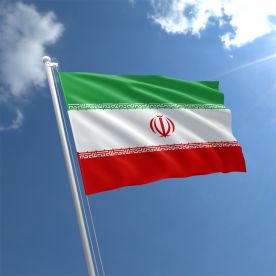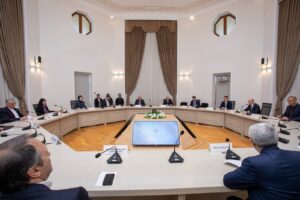Iran Dismisses Trump’s Ceasefire Claim as Fabrication Aimed at Pressuring Tehran

Tehran, The Gulf Observer: The Iranian government has strongly rejected claims made by former U.S. President Donald Trump regarding a purported ceasefire agreement between Iran and Israel, describing them as falsehoods designed to manipulate public opinion and pressure Iranian leadership.
In the early hours of Tuesday, Trump posted on his Truth Social platform that Israel and Iran had “fully agreed” to a phased ceasefire set to begin within 12 hours. However, according to information obtained by The Tehran Times, no such agreement exists, and the claim has been dismissed by Iranian officials as baseless and politically motivated.
Sources in Tehran suggest the move is part of a broader psychological campaign by Trump aimed at creating internal pressure within Iran by misleading the public into believing that Iranian authorities are unwilling to pursue peace. “The intention is to portray Iran’s leaders as obstructing a ceasefire, thereby stirring domestic dissent,” one Iranian analyst noted.
Iranian Response
Mahdi Mohammadi, advisor to the Speaker of Iran’s Parliament, was among the first officials to respond. Writing on X (formerly Twitter), he stated: “The U.S. and Israel are lying. They want Iran to put down its guard so they can escalate the tensions.”
Mohammadi’s remarks reflect growing skepticism in Tehran over Washington’s motives, particularly after months of indirect engagement with the U.S. that were followed by coordinated Israeli strikes on Iranian soil.
Iranian officials point out that this is not the first time Trump has made misleading public statements regarding Iran. Earlier in the conflict, Trump falsely claimed he would take “two weeks” to decide whether to attack Iranian nuclear facilities, all the while reportedly coordinating with Israel for a surprise military assault.
Escalation of Hostilities
The current conflict erupted on June 13 when Israel launched an unprecedented military campaign targeting Iran’s nuclear, military, and civilian infrastructure — including residential areas and the Fordo underground enrichment site — just as Iranian officials were preparing to attend a sixth round of indirect negotiations with the United States.
In response, Iran has launched retaliatory missile strikes targeting Israeli military installations, and tensions escalated further after the U.S. joined the conflict on June 22 by striking three Iranian nuclear sites. Tehran responded by targeting the U.S. Al Udeid Air Base in Qatar with ballistic missiles.
No Confirmation of Ceasefire from Tehran
Iranian officials have confirmed that no ceasefire agreement has been reached with Israel and reiterated that any potential de-escalation must be based on transparency, mutual guarantees, and cessation of hostile activities by both Israel and its Western allies.
The Iranian government has called for regional stability to be achieved through dialogue rooted in mutual respect and the protection of national sovereignty — not through fabricated narratives or coercive diplomacy.
As of now, Tehran remains on high alert, viewing Trump’s announcement as a potential tactical ploy aimed at catching Iran off guard militarily.
In the absence of official confirmation from Iranian or Israeli authorities, the claim of a ceasefire remains unsubstantiated. Iranian media and government sources have warned the public to remain vigilant and not be swayed by what they describe as “foreign propaganda aimed at weakening national resolve.”


